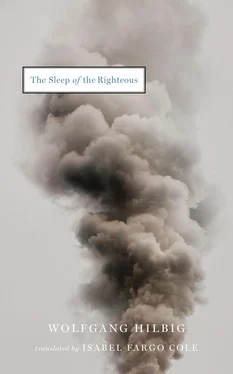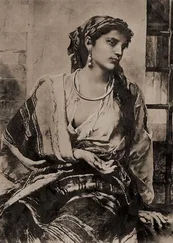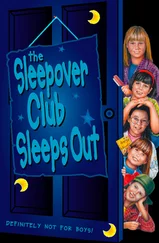I knew what awaited me in M.; I’d given up all hope for change. When I got off the rickety suburban train and crossed the station hall, already seeing several odd, loitering figures who took a striking interest in the bare walls when I passed, and when I walked down Bahnhofstrasse and turned further down onto the main street, not without looking about to see whether I was being followed in due form, then I knew that nothing had changed here. By the marketplace, at the latest, I ceased to care whether they were following me; I knew I was now in the past, in a time that hadn’t moved from the spot. I’d been unable to make out the station clock, but I was convinced that its hands hadn’t moved an iota. Fog, drizzle, and snow sank unchanged through the islands of reddish streetlights, as though even the weather were a mere expression of stagnation and the past. When I arrived in my kitchen at last, when the fluorescent tubes burned over the table, when the stove was heated, I spread out my papers in front of me. And as my perplexity grew, I began listening to the night outside.
Now and then I thought I heard steps down in the street: he, he alone could describe the town, but he didn’t, at least not as I would have done. — He was the restless spirit of this town, his presence spectral and indisputable. And when he thought about the town, it was in phrases that came ever faster, ever shorter; short-winded phrases; meanwhile he passed without pausing. They were after him, as they were every night. He fled, began to limp, I could hear it clearly; he was already flagging. He didn’t stop, he went on to the end of the street. There he disappeared, but only for a moment. He could think the town’s story only in fits and starts, without patience, without beginning and end. More and more often he stopped to catch his breath, pressing himself into an entryway, listening into the darkness. He knew they were there somewhere, listening as well. A little further. At the next corner he set down the olive-drab bag and asked a chance passerby for a light. The cigarette glowed in his cupped hand, and he walked on. After just a few steps he threw away the cigarette and ran. He came past the train station, skirting it, straight through the wet shrubs, then slid down a railroad embankment and returned to town via muddy side streets, as he’d often done before. But he couldn’t shake them off; they were always somewhere in the darkness behind him. At some point the church clock on the market square struck, like the reverberation of a second that had slipped into a coma. I counted the strokes, he did not; he ran on.
The photo he had taken years before was in my possession, and really it was I they should have hunted.

It was an odd thing: in the night, the dark morning, he’d feel driven out onto the street again. — How should he call it: a habit, a restlessness from former times that had grown old with him? He wanted no more part of it! — For instance, he’d walk up the street to the mailbox at this ungodly hour, as he’d taken to calling it. And he knew that he was trying to avoid meeting any of the people who set out this early, between four and five, on their daily way to work. It was long since C. had been one of them, more than fifteen years, but down on the dark street, on the maybe five hundred yards to the mailbox, it was clear to him that a disquiet from that time still lay deep within. This disquiet was otherwise silent, he was quite immune to the thought of it, but at that particular hour something within him responded. . Quite automatically! he said to himself.
A single stumble, and that old feeling resurfaced: he was driven by the duty to set out into the world, and yet he didn’t want to. He wasn’t even able yet to let himself be driven. In a daze he watched himself charge onward, coughing, sucking at a cigarette; the cold made his eyes water, he felt the icy runnels on his cheeks. The frosty air blew every bit of sleep from his brain, but his thoughts refused to clear, nothing but numbness was left in his skull. The frozen block behind his brow held but one aspiration: to reach the station in time, to drop onto the red-brown plastic upholstery of the dimly lit railcar, and there, for precisely eight minutes, amidst relative warmth, to collapse.
He had to get out at the very next station. There was another stretch of road before him, still more unpleasant, as it led through the open terrain of the mine pits. The wind howled here, raising sharp, icy dust from the road’s concrete slabs and flinging it into his face. But somehow he always seemed to have soaked up warmth in the suburban train, making the stretch to the factory entrance easier to cover.
Now, on the short trip to the mailbox, he felt abruptly transformed to a previous state: all that had befallen him in his later life, all that had changed him, suddenly seemed unreal, a way of life forced upon him by whim or by chance, for which there was no real inward reason. Now he was every bit the half-stupefied figure from back then, hastening onwards, coattails flying, beneath the wind-rattled lamps. He hurried through their circles of orange light that scattered, shifting across the pavement. In many places this pavement was uneven, bulging and split as though something pressed on it from underneath. And he often thought these places changed overnight, and kept tripping him unexpectedly; and each time his feet caught on the crooked slabs, a strange sentence came into his mind: I don’t need to know what’s down there beneath me!
He remembered: he’d already had a restless spell yesterday. Just after four, before the need for sleep came over him, the long-familiar emptiness gaped within, as it regularly did; if he hadn’t yet been to the mailbox, he’d pull on his coat over the faded old sweat suit he wore in the house, slip on his shoes, usually without socks, and run outside with his shoelaces untied. The street was usually deserted; it would have been awkward for him to run into someone he knew in his slipshod get-up. Only a few cars would pass him, headlights on full beam, and for a few seconds he’d jog along in their light; doubtless no one recognized him, he’d left town long ago.
They raced down the street as though hopelessly late. — Those who still had work, and that wasn’t many these days, might have driven off an hour ago already; it seemed they commuted to jobs in Bavaria, in Hof or even Nuremberg, driving hundreds of kilometers, spending up to fifteen hours away from home each day. Of course, they earned twice what they could have at the few jobs here. And here they paid much less rent. But they were hardly ever home; despite the money, their marriages broke up one by one.
He sometimes had half a mind to mention these things in the letters he sent. He had this urge each time he got a letter from West Germany sharing someone’s evident gratification at how the East German towns were finally being refurbished.
There you have it, he thought, now they’re replastering the façades, and bit by bit the former Zone’s houses will cease to offend West German eyes.
In actual fact, he wrote nothing of the sort; generally, when people adopted such a tone, he let the correspondence lapse quite quickly. The messages he sent consisted of just a few inconsequential lines, often addressed to people he barely knew even in passing. — He’d write to them that he had to remember, or at least thought he had to, because the town he came from, where he’d grown up, essentially no longer existed, and his memories of this place had turned porous, with more and more holes gaping in them.
Читать дальше













